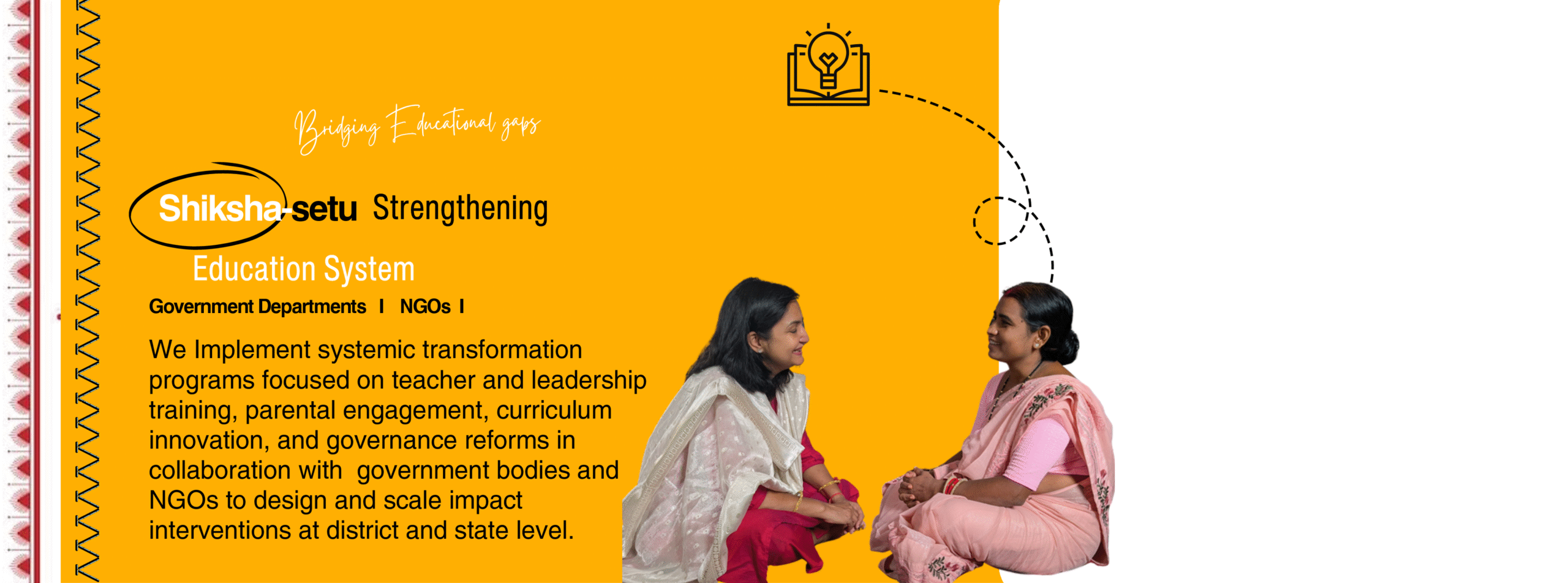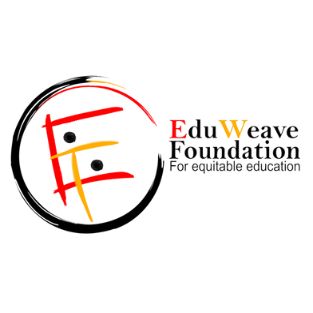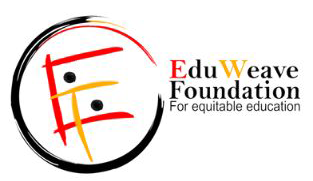
Shiksha Setu – Bridging Educational Gaps |
We weave meaningful interactions among all stakeholders and components of the education ecosystem to drive systemic change.


District Transformation – strengthening system for equitable learning opportunities
Raipur, Chhattisgarh (Gadhbo Bachpan – carving childhood)
In collaboration with WCD Chhattisgarh
Anganwadi Workers | Parents | Community Leaders | Children
We bring play, care, and connection to the heart of early education—making learning joyful, rooted, and developmentally appropriate for every child.
Gadhbo Bachpan project as Raipur district-wide early childhood education initiative for systemic change in ICDS system. Spanning 1,941 Anganwadis and reaching over 62,400 children in Raipur, it focuses on strengthening school readiness through a holistic, contextual, and community-driven approach.
At its core, the program builds:
- Localised, culturally-rooted learning content
- Capacity building of all stakeholders
- Supportive supervision and mentoring systems
- Parental engagement through monthly ECCE Days
- Micro-Improvement Plans to reimagine pedagogy, routines and Anganwadi environment
Srinagar, Jammu and Kashmir
Srinagar District Transformation Initiative
In collaboration with Department of Education
Teachers | Community Leaders | Children
In collaboration with the Department of School Education, Kashmir, and Mission Directorate, Poshan, Jammu and Kashmir.
A comprehensive district transformation initiative in Srinagar, Jammu & Kashmir, focused on strengthening the public education system from early years through secondary school.
The project spans 554 schools, reaching 42,575 children, 4,373 teachers, and 1,190 Anganwadis, impacting approximately 18,354 children aged 3–6 years and supported by 1,127 Anganwadi workers.
At its core, the initiative emphasizes Early Childhood Care and Education (ECCE) and Foundational Literacy and Numeracy (FLN), recognizing these as critical building blocks for lifelong learning and success.
Through this program, EduWeave Foundation works collaboratively to:
- Improve learning outcomes across all grade levels in schools and Anganwadis.
- Empower educators, school leaders, and Anganwadi workers through contextual and need-based training.
- Reform and enrich curriculum to ensure it is engaging, age-appropriate, and culturally relevant.
- Strengthen parental and community engagement, enabling families to become active partners in their children’s learning journey.
- Build systemic capacity at all levels to create sustainable, scalable improvements.


StateTransformation – Strengthening of FLN and quality education
West Bengal
In collaboration with the Department of School Education, UNICEF
Head Teachers | Anganwadi workers ,Primary Teachers | Parents | District Leaders | Children
Reimagining Early Learning for Every Child
The partnership between UNICEF and EduWeave Foundation aims to drive systemic improvements in foundational learning (FLN) across West Bengal. This strategic collaboration focuses on creating sustainable, scalable, and institutionalized impact by strengthening state capacity, fostering multi-stakeholder collaboration, and integrating FLN within the broader education system.
Building Evidence-Based Models and Strengthening Systems
The initiative pilots and refines FLN interventions in Murshidabad, creating scalable best practices. Comprehensive capacity-building programs for teachers, Heads of Institutions (HOIs), and district officials ensure these improvements are sustainable and embedded into the system through contextualized Micro-Improvement Plans, monthly parent-teacher meetings (PTMs), and continuous mentoring. This approach lays a strong foundation for policy-aligned, institutionalized impact.
- Enhanced quality of pre-primary education, strengthening school readiness among Class 1 students.
- Improved teaching-learning practices and community engagement in 50 selected primary schools, across both pre-primary and primary classes.
The initiative seeks to achieve sustainable, large-scale impact through:
- Integrating revised curricula and updated workbooks into the state education framework to ensure long-term adoption.
- Strengthening teacher capacity through structured training, continuous mentoring, and systematic knowledge transfer to state and district teams.

